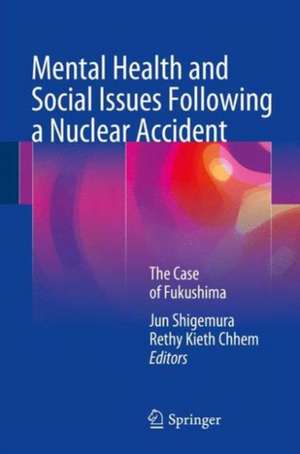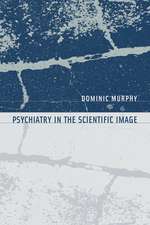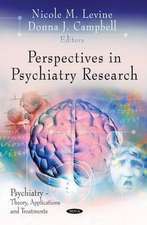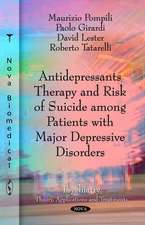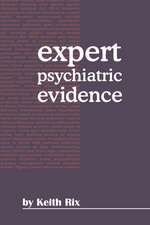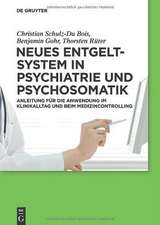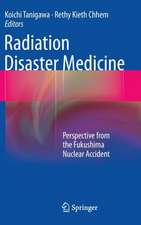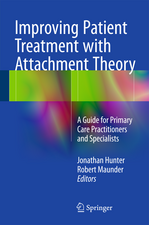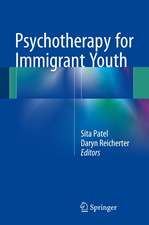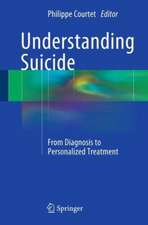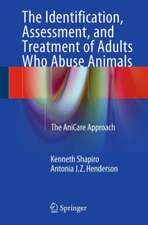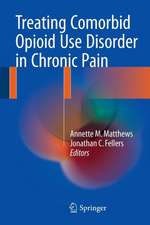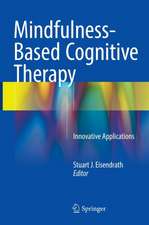Mental Health and Social Issues Following a Nuclear Accident: The Case of Fukushima
Editat de Jun Shigemura, Rethy Kieth Chhemen Limba Engleză Hardback – 8 dec 2015
nobyl.
| Toate formatele și edițiile | Preț | Express |
|---|---|---|
| Paperback (1) | 633.02 lei 38-45 zile | |
| Springer – 27 mar 2019 | 633.02 lei 38-45 zile | |
| Hardback (1) | 651.36 lei 38-45 zile | |
| Springer – 8 dec 2015 | 651.36 lei 38-45 zile |
Preț: 651.36 lei
Preț vechi: 685.64 lei
-5% Nou
Puncte Express: 977
Preț estimativ în valută:
124.63€ • 130.60$ • 103.04£
124.63€ • 130.60$ • 103.04£
Carte tipărită la comandă
Livrare economică 07-14 aprilie
Preluare comenzi: 021 569.72.76
Specificații
ISBN-13: 9784431556985
ISBN-10: 4431556982
Pagini: 130
Ilustrații: XXI, 130 p. 20 illus.
Dimensiuni: 155 x 235 x 12 mm
Greutate: 0.45 kg
Ediția:1st ed. 2016
Editura: Springer
Colecția Springer
Locul publicării:Tokyo, Japan
ISBN-10: 4431556982
Pagini: 130
Ilustrații: XXI, 130 p. 20 illus.
Dimensiuni: 155 x 235 x 12 mm
Greutate: 0.45 kg
Ediția:1st ed. 2016
Editura: Springer
Colecția Springer
Locul publicării:Tokyo, Japan
Public țintă
Professional/practitionerCuprins
Foreword.- Preface.- 1. Godzilla mon amour: the Origins and Legacy of Nuclear Fear in Japan.- 2. Unforeseeable Accidents from the Point of View of the Legal System.- 3. Report on Fukushima Counseling Support Professional Team: Interdisciplinary Team Approach for Psychosocial Care of Evacuees.- 4. Societal and Ethical Aspects of Radiation Risk Perception.- 5. Thinking Across Disaster.- 6. Emotional Consequences of TMI and Chernobyl: Lessons Learned for Fukushima.- 7. 3/11 and 9/11: A Multi-faceted Investigation of a Survivor Exchange Program.- 8. Psychosocial Responses to Disaster and Exposures: Distress Reactions, Health Risk Behavior, and Mental Disorders.- 9. Psychosocial Challenges of the Fukushima Nuclear Plant Workers
Recenzii
“The book aims to improve the global understanding of the impact of nuclear disaster across various dimensions. … The audience includes those involved in government, policy making, public health, aid organizations, as well as others who might be affected by or involved in dealing with the consequences of a major disaster. … This book explores the complex consequences of a nuclear disaster and the multiple disciplines and expertise required to address such difficult situations.” (Michael Easton, Doody’s Book Reviews, July, 2016)
Notă biografică
Editors:
Jun Shigemura
Department of Psychiatry
National Defense Medical College
Saitama, Japan
Rethy Kieth Chhem
Fukushima Medical University, Fukushima, Japan
Hiroshima University, Hiroshima, Japan
Nagasaki University, Nagasaki, Japan
Jun Shigemura
Department of Psychiatry
National Defense Medical College
Saitama, Japan
Rethy Kieth Chhem
Fukushima Medical University, Fukushima, Japan
Hiroshima University, Hiroshima, Japan
Nagasaki University, Nagasaki, Japan
Textul de pe ultima copertă
This book focuses on mental health issues arising in the wake of the Fukushima nuclear disaster. Three years after the 11 March 2011 Great East Japan Earthquake, tsunamis, and Fukushima Daiichi nuclear accident, roughly 130,000 individuals continue to face enormous burdens as a result of mandatory evacuation. Many evacuees still live in temporary housing, and returning home remains a distant dream as they wait for the decontamination of the danger zone to be completed. However, the plant recovery process is still evolving, and the complete cleanup will take decades. Beyond all of these hardships, many evacuees are also mourning the loss of their loved ones. The compound disaster with its many uncertainties poses and will continue to pose serious emotional and social challenges. People affected by the nuclear disaster have been facing serious psychological challenges from ongoing fear of radiation exposure. Furthermore, there is continuing debate between various stakeholders on the options for disaster responses. This situation in turn produces adverse public responses, such as discrimination and stigmatization of the evacuees and scapegoating of the authorities and nuclear plant workers. Mental Health and Social Issues Following a Nuclear Accident addresses these issues and their impacts, pursuing both evidence-based and narrative-based approaches. It also contrasts the Fukushima findings with those of other nuclear disasters, namely, Three Mile Island and Cher
nobyl.
nobyl.
Caracteristici
Highlights mental health issues following the Fukushima nuclear disaster Addresses psychosocial issues that produce negative impacts such as discrimination, stigmatization, and scapegoating Contrasts the Fukushima findings with those of Three Mile Island and Chernobyl Includes supplementary material: sn.pub/extras
